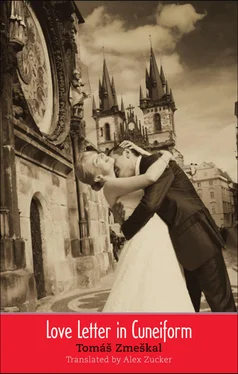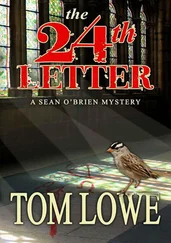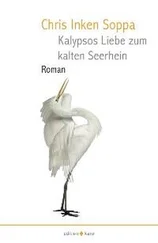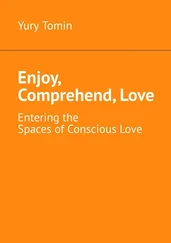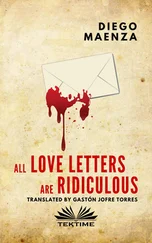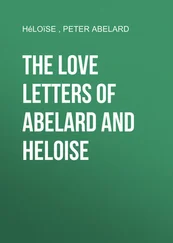“That day I went back to see my wife’s uncle. But the house was abandoned and the old man was gone. The neighbors said he had gone off to buy sacred manuscripts near the border with Armenia. When I told my wife, she said she went to cook and clean for him every now and then, and that he had left a letter for us with the neighbors. The calligraphy was more beautiful than any I have ever seen since. In it, my wife’s uncle, who still addressed her as ‘my little one,’ wished us both a good life and said that he had heard my fate, like a river, had returned to its original course. Then, as is the wont of old people, he spent forever reminiscing about the days when he was young and my wife and the other children played in his room. The days when he was still full of pride and daring enough to draw back the curtain concealing God’s intentions. But now, he said, he understood that our fate was even for him an invitation to step into the unknown.
“As testified to by this story of mine, I too recently found myself remembering moments in my youth, which is something only old and sick people do. That’s me now, old and sick, just waiting for Azrael to escort me on my way. I suspect his visit will coincide with the ripening of the olives, and I hope there will be time still for me to complete this year’s harvest.”
Dr. Lukavský had taken down a few notes while listening to the story, and the next day he went to the library and compared a few different versions of the stories from The Thousand and One Nights . He began with the table of contents. Then he looked in the index. Finally, he looked through the story titles, and even read some of them. But he couldn’t find the pastry chef’s story anywhere. After more than an hour he realized he had to give up the search since it was time for his afternoon appointments. I must have overlooked it, he concluded. It must be from here. But amid the crush of other work, he was unable to devote any further attention to verifying the sources of the pastry chef’s lively imagination.
When they took Josef away on suspicion of subversion, Alice was exactly three months and four days old. Květa didn’t know what to do or where to go, she just had a feeling she had to do something, and fast. It felt as if speed was the most important thing, as if charging recklessly forward, like spring shoots bursting forth from the earth, offered some sort of hope. She took the baby and went to her mother’s. But the moment Květa saw her mother standing there, old and uncomprehending, she realized that it wasn’t only Josef she had to worry about, but her mother as well. Changing her granddaughter’s diapers, she began to look settled and peaceful again. Květa explained to her that three men had shown up at their door, ordering Josef to collect his identification papers and come with them. They wouldn’t even let her touch him, and when she disobeyed and tried to hug him good-bye, one of the men stepped in between them and put his hands firmly on his hips. It was the first time Květa had ever encountered fear. Her arguments, pleas, and explanations fell on deaf ears. Making the whole thing even harder was that it wasn’t at all clear what to argue against, what to plead, or what to explain. All her efforts seemed to be completely ineffective. They took him away, just like that. She was surprised at how calm and restrained her husband was. Almost as if he wanted to go, to be with them. As if there were some kind of secret bond between them. As if … And then they took him away. And he was out of her sight. She ran down the stairs with them, in spite of his quick and unexpectedly firm shake of the head to signal his disapproval, as though he knew something she didn’t. But then when she got to the front door of the building, she heard her child scream, and the sound of her daughter’s vocal cords stamped her heart or soul or brain with resolute sobriety. Her daughter’s cry was a cry of pain and, now also, longing for Josef. Longing like a guest, bold, brash, and sober, who has registered, pulled out his credentials and slapped them down on the reception counter, the trump in a game lost in advance, and doesn’t mind in the slightest that the previous guest hasn’t packed yet, left, and returned the keys, isn’t put off one bit that the sheets haven’t been changed. Longing just soberly and matter-of-factly watched as the three men led Josef away, knowing he was to replace Josef and stand in for him. Her daughter’s cry made Květa run back up the stairs, lift her into her arms, and part the curtains so she could see out the window to where the car with her husband was parked. But they were all gone. Afterward, her mother tried to reassure her, saying it had been five years since the war now, things had finally settled down, they were all Czechs after all, nothing could happen as long as a person was honest and decent and hardworking, what could they possibly do to him?
Once her daughter had fallen asleep, Květa left the building without saying good-bye. It wasn’t until she was out on the sidewalk that she realized she had no idea where to go to look for Josef. She walked the city till nightfall. With no destination, no companion, no reason. As the streetlights came on, she suddenly looked up and saw the statue of St. Wenceslas, surrounded by four saints. Looming behind them was the edifice of the National Museum, filled with fossils, stuffed birds, and rocks, and the skeleton of a whale. Květa stood there on Wenceslas Square, gazing up at the patron saint of the Czech lands with the giant gilded stone box behind him, its contents plundered and snatched from nature. Then she heard a newsboy and realized he was offering her a paper. She took it, paid, and put her wallet back in her purse. When she heard his voice assailing her again, she decided to ignore him, quickly turning off into Krakovská Street and entering a shopping arcade. Suddenly somebody put a hand on her shoulder. She turned and saw an elderly woman. “Miss … miss, your newspaper. Your paper.”
“Ma’am,” Květa said. “It’s ma’am, not miss. Ma’am.”
“You dropped your paper,” the woman said, handing it to Květa. Květa nodded thanks. The newsboy’s voice was out of range now. She unfolded the paper. The front-page story was on the latest census. The headline said as of March 1, 1950, there were a total of 12,338,450 people in Czechoslovakia, of whom 8,896,133 lived in the Czech lands, comprising Bohemia, Moravia, and Czech Silesia. Květa walked silently through the arcade, her mind empty. She stepped out onto the sidewalk and looked at the numbers again. How could anyone figure that out? she thought. Such a big number. So many people. Too many to visit them all, she mused. I’m sure there’s some office that does it. I wonder which of those numbers is me? And which ones are Josef and Alice? Eventually Květa decided the last three of the 8,896,133 residents must be them. Definitely, she thought. Those last three must be us, and there must be an office somewhere that does it.
After a few days, her mother came to visit. Before she even stepped in the door, she pressed a piece of paper into Květa’s palm. On it, in big shaky grandmotherly letters, it said: Hynek Jánský, J.D. Below it was a street address and the name of some office she’d never heard of. “He’ll definitely help us,” her mother said, draping her coat on a hanger. “He’ll definitely help us,” she said again, walking into the kitchen. “He’s always been partial to you,” she added, before turning her attention to her grandchild.
Květa knew that Josef was being investigated for something he clearly couldn’t have done. What could he be guilty of, when all he ever did was sit at home or in the office doing calculations? Besides, as he used to say, a structural engineer is the kind of expert the communists are going to need, because statics, my dear Květa, statics is part of the science of engineering. It’s got nothing to do with politics. It’s what keeps buildings from falling down, and bridges and dams and towers and factories, it’s what keeps all of them standing. That’s what he used to say, but now she wasn’t so sure anymore, and it had occurred to her several times, no matter how hard she tried to suppress the thought, that even the impossible was possible, and Josef may have been mistaken, he may have made a grave miscalculation on that beautiful new-looking snow-white plastic slide rule of his. And now, as a result, Květa stood before Hynek Jánský, doctor of both laws, best buddy and friend. A skilled tennis player and, once upon a time, a member of the same tennis club as she and Josef. Hynek wore a smile and, as usual, a perfectly tailored pinstripe suit. A small vase of primroses stood on a table in the middle of the office, and a young man with documents under his arm rose from a small table in the corner of the room, probably a clerk. Hynek nodded to him and he left. After several days of trying to find her husband and failing, she had ended up at Hynek, which in that crazy time of confusion was probably the best thing that could have happened. “Květa, honey, come in, you don’t have to stand over there by the door,” he said, holding out his hand. His handshake was brief, firm, friendly, and dry, and he smelled of aftershave. After his clerk or secretary or whatever he was had closed the door and the spring in the lock clicked shut, he brought her hand to his mouth as if he were going to kiss it, as had been the custom prior to the war, but he didn’t, because the communists had been in power for well over a year now, and any gesture as bourgeois as that would have been foolishly compromising, and yes, in fact dangerous. It would have been less risky to kiss her on the mouth than to kiss her in any overly sophisticated fashion.
Читать дальше
